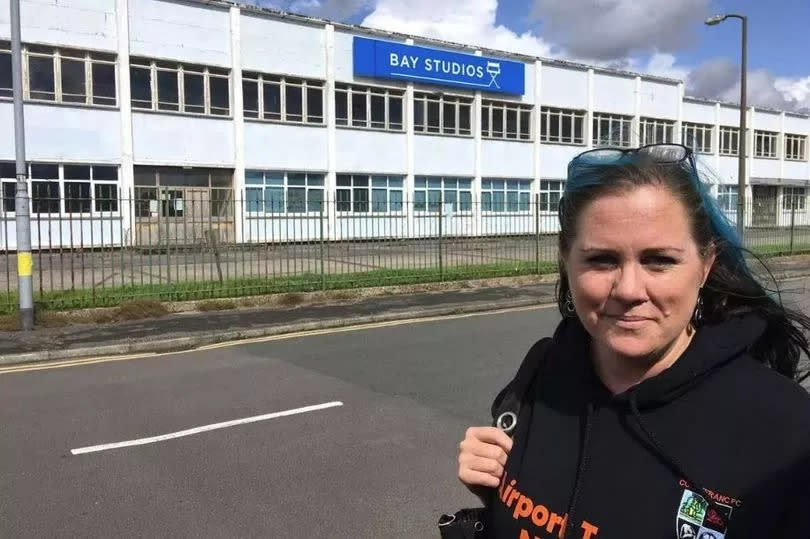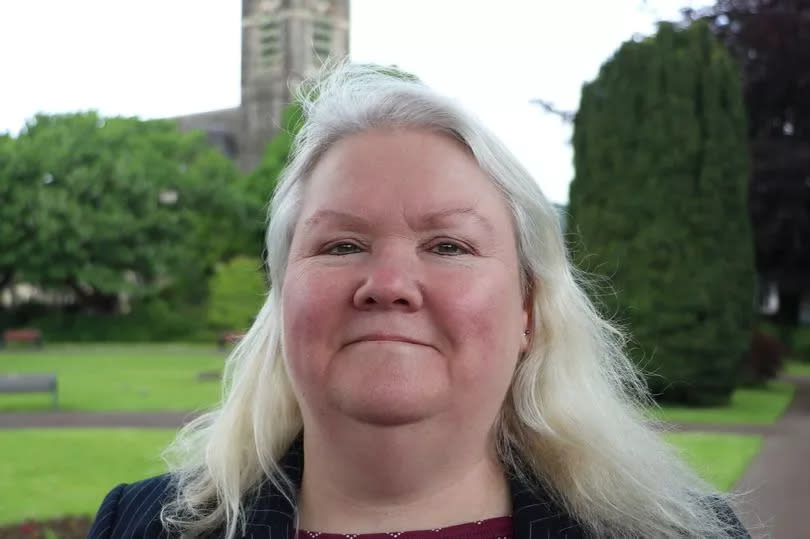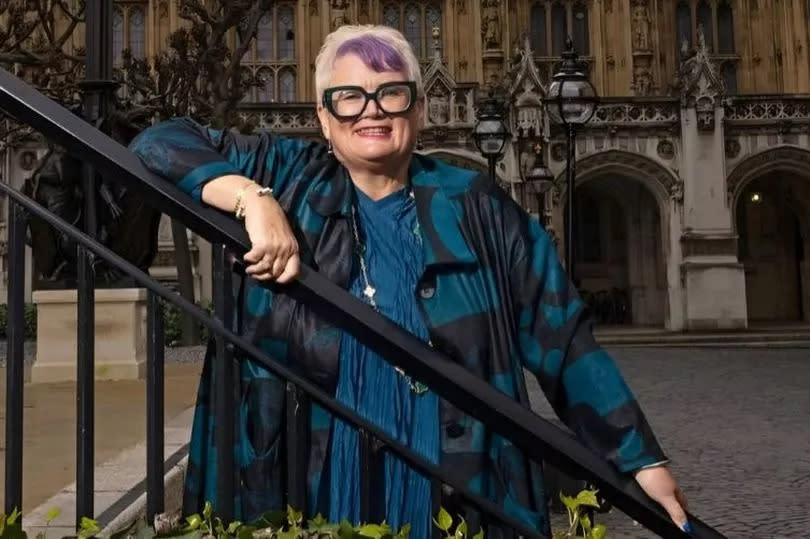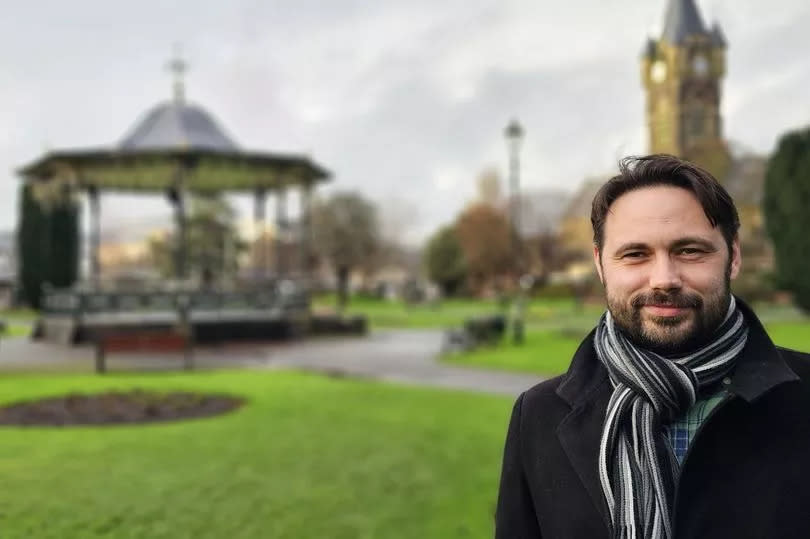General election 2024: Find out more about the candidates standing in Neath and Swansea East

The existing Neath constituency has been merged with Swansea East as part of the boundary review. Both are however safe Labour seats.
The boundaries of all but one Welsh seat have changed ahead of the 2024 election, only Ynys Mon (the island of Anglesey) remains untouched, all others have seen changes which could impact the results on election night. You can read the background to the changes here.
Instead of 40 constituencies, there are now 32 in Wales and the idea behind it is to make all Westminster constituencies the same size. Using figures from electoral calculus, we can see how this constituency is changing. It is a combination of four different seats with 68% of Neath, 37.4% of Swansea East, 16.2% of Aberavon and 9.2% of Gower.
READ MORE: What is my general election 2024 constituency - as 90% of areas hit by boundary changes
READ MORE: Who are the candidates where I live in the general election 2024
Where does the constituency cover?
It includes Tonna, Resolven, Glynneath, Seven Sisters and Crynant.
You can also find your constituency by entering your postcode here:
What happened in the General Election in 2019
Who is standing?
Samantha Nida Chohan (Conservatives)
Helen Ceri Clarke (Lib Dem)
Jan Dowden (Green Party)
Carolyn Harris (Labour)
Andrew Jenkins (Plaid Cymru)
Dai Richards (Reform UK)
The candidates
All candidates were all asked to answer the same questions, the responses received are all below:
Helen Ceri Clarke - Lib Dem

I work for Kidney Care UK as a patient support and advocacy officer having previously worked for Parkinsons UK and the MS Society. I am a 49-year-old married mum of two teenage boys and also a councillor on Neath Port Talbot Council. I enjoy reading and going to rock and metal gigs.
Name a policy you want to see become law if elected as an MP
Reform of disability benefit to fully recognise the stress that assessment has on degenerative and chronic conditions.
What's the biggest issue facing Wales and what will you do to fix it?
Social care is the biggest issue facing the country. Without fixing this you cannot possibly address the problems in the NHS. We have to make a career in social care attractive with high status and pay accordingly. Recognising that it is not unskilled but one of the most important jobs in society.
Who has been the best British Prime Minister and why?
As there hasn’t been a Liberal Democrat Prime Minister in my lifetime I’d like to suggest the best PM we never had, Charles Kennedy.
Jan Dowden - Green Party

My name is Jan Dowden and I am a 56-year-old mother of one who works part-time as a staff nurse in a general hospital in South Wales. I have been nursing for 37 years and spent 30 years as a registered general nurse (R.N). I have lived in South Wales for 21 years and have lived in Neath for 6 years. When I am not working, I like to attend my art society, paint with watercolours and draw with mixed media. I also like to walk to the various parks in Neath such as Victoria and Gnoll parks.
Name a policy you want to see become law if elected as an MP
The policies of the Green Party are not the same old stale ideas, we start from a different set of principles that hold fairness and equity at their core. In order for our society to have a sustainable future, I would like to promote policies that define wealth in a broader way than just money. How we see wealth should acknowledge society and our environment as interdependent systems that both need to thrive.
The pursuit of economic growth too often occurs at the expense of clean air, rivers and seas, and the carbon emissions that drive current growth are also increasing the extreme weather events that are now a threat to farming and our infrastructure. I support our policy to invest £40bn in the green economy, a £12.4bn investment in green skills, and community-owned energy schemes such as wind farms that directly benefit residents and the local economy.
What's the biggest issue facing Wales and what will you do to fix it?
The cost of living crisis is affecting families across Wales. Some people are working many hours and still relying on food banks to help support their families. This is an unacceptable situation in the 21st century when the country as a whole has the resources to support a dignified quality of life for all. People should not have to choose between heating their homes and eating, and yet many families are in this situation right now.
To address this, I will support a Wealth Tax on the richest 1% on assets of over £10 million and reform of Capital Gains Tax which affects about 2% of all taxpayers. This will help divert our national wealth to the families that need it most, instead of further benefiting those already rich. I am also strongly in favour of better protections for gig economy workers, giving them equal employment rights to other workers.
Who has been the best British Prime Minister and why?
Atlee stands out as a Prime Minsiter who has had a lasting positive legacy for this country. He drove through the creation of the NHS and welfare state reforms, something many did not think was possible and many resisted. He saw the best side of humanity and built his policies to bolster these values, and the practical value of this principle of caring for each other has lasted (though vastly impoverished after Conservative under-investment).
We desperately need more of this ambition and creativity in modern-day politics. Labour no longer has the courage to pursue Atlee’s vision. The four-day week, one of the Green Manifesto pledges, is an Atlee-like bold move that many think is impossible, but one day will seem a similarly logical and practical way to have a full life.
Carolyn Harris - Labour

Born and bred in Swansea, I grew up with a keen interested in politics from a young age but was discouraged at school from pursuing my dreams of a career. I married and had two children in my early twenties and worked as a barmaid and dinner lady.
Losing my eldest son Martin in a road accident in 1989 was a turning point in my life. Out of my grief came a determination to do something to help others. I went to university in my 30s, and after graduating worked for charities before having my youngest son in 2001.
After working as a Parliamentary Assistant, I was first elected Member of Parliament for Swansea East in 2015 and became the first Deputy Leader of Welsh Labour in 2018. I continue to live in Swansea with my husband David and my youngest son. When time allows, I enjoy knitting, reading and trips to the theatre.
Name a policy you want to see become law if elected as an MP
As someone who has had previous success in changing the law on fixed odds betting terminals, children’s funerals and prescription charges for HRT, my passion will always be about using the platform to be a voice for those who are struggling.
Making women’s health a priority is of the utmost importance to me. The Conservatives have failed on women’s health. I would like to see a Labour Government prioritising women’s health, ensuring women in every part of the country have equal access to treatment and support, in particular when it concerns menopause care. I want to see an end to the postcode lottery and to the inadequacy of access to treatment for women in deprived areas and from minority groups.
What's the biggest issue facing Wales and what will you do to fix it?
The biggest issue is the lack of investment from UK government which means that areas that are devolved like education and health, are woefully underfunded. For too long, Welsh Government have been limited by insufficient budgets that have been set by others.
A Labour Government in Westminster would fix that. Our Party will look to work alongside the devolved nations to ensure that wherever people live, they have equal access to the very best services.
Keir Starmer has made it abundantly clear – Country first and Party second. A Labour Government will work cross-party, wherever necessary, to ensure that investment is based on the needs of the whole country. It is vital that our schools, our NHS and our communities more widely are given the resources they need to help people now, and for generations to come.
Who has been the best British Prime Minister and why?
Politicians should be elected by the people, for the people. In recent years we have seen a series of Prime Ministers who have prioritised themselves or their Party ahead of the electorate.
The result is a country in desperate need of change. A country that is broken and where families are struggling to put food on the table and pay the bills because the cost of living has rocketed. A country where our National Health Service, which should be the envy of so many, is on its knees.
We have been here before. In 1997, education, health and transport services were all failing becomes of major under-investment. We needed a Prime Minister, who was unafraid of change. A Prime Minister willing to put the country first and make necessary reforms to improve these public services. Tony Blair improved the prospects and the lives of so many and that is why I believe he has been the best Prime Minister this country has had.
Andrew Jenkins - Plaid Cymru

Born on July 5th 1984, I will turn 40 while watching ballot papers counted. I was born in Neath. I’ve grown up here, I work and volunteer here, I live here and am raising my family here.
I went to Ynysfach Primary School, Llangatwg Comprehensive, Swansea College and later Swansea University where I achieved my BA and MA. I have struggled with anxiety and depression, making me passionate about what support is available in our communities.
That’s why I started volunteering and got involved in politics. I served on Neath Port Talbot Council between 2012-2017, before working in children’s rights projects at Swansea University, an unpaid carers project with Age Cymru, and now as a community liaison officer for Sioned Williams MS.
I enjoy writing, going for walks and taking part in litter picks. Major Star Trek fan. Absolutely proud to be the father of one of the cheekiest boys on the planet!
Name a policy you want to see become law if elected as an MP
I would like to see the devolution of welfare to Wales. During a period of my life when I was struggling, I had to sign on for jobseekers allowance and then later, at another time of difficulty, universal credit.
I dreaded going to the job centre – not because I wasn’t doing my job searches, but because it was a depressing, soul destroying experience. The DWP does not provide the person-centred support they should, and in order to satisfy targets from above are now putting more barriers in front of people, pushing more people into poverty and ill health as a result. I would want to see welfare devolved to Wales so that we can begin to build a more comprehensive, empowering system of welfare that is focused more on support, not sanctions.
What's the biggest issue facing Wales and what will you do to fix it?
The cost of living crisis and over a decade of austerity has placed enormous strain on our communities and country. Demand for all forms of support – from food banks to warm banks – has grown, and vital services including our health and social services, schools and even public transport have been unable to afford to provide the level of service we need.
I will be fighting for fairer funding from Westminster, ensuring that Wales is funded on the basis of need rather than the crude model we have now. I want to them see that funding put to good use, investing in our transport infrastructure and public transport networks in particular, bring down waiting times, and eradicate child poverty. I will work directly with those making a difference on the ground, supporting their work while fighting for them to be heard in London.
Who has been the best British Prime Minister and why?
Clement Attlee, Prime Minister between 1945 and 1951. In the aftermath of the Second World War, the UK was facing enormous challenges – many lives had been lost, cities and towns bombed, there were significant economic problems and longstanding issues such as poverty and lack of adequate healthcare access.
In spite of the financial constraints, Clement Attlee did not scale back his ambition in his pursuit of a fairer, more prosperous UK. He laid the foundation for the NHS, delivered by the Welshman Aneurin Bevan and inspired by the Tredegar Medical Aid Society, as well as the system of welfare. He challenged the injustices and inequalities head on, and left office having set the stage for decades worth of growing prosperity and social justice.

 Yahoo News
Yahoo News 
